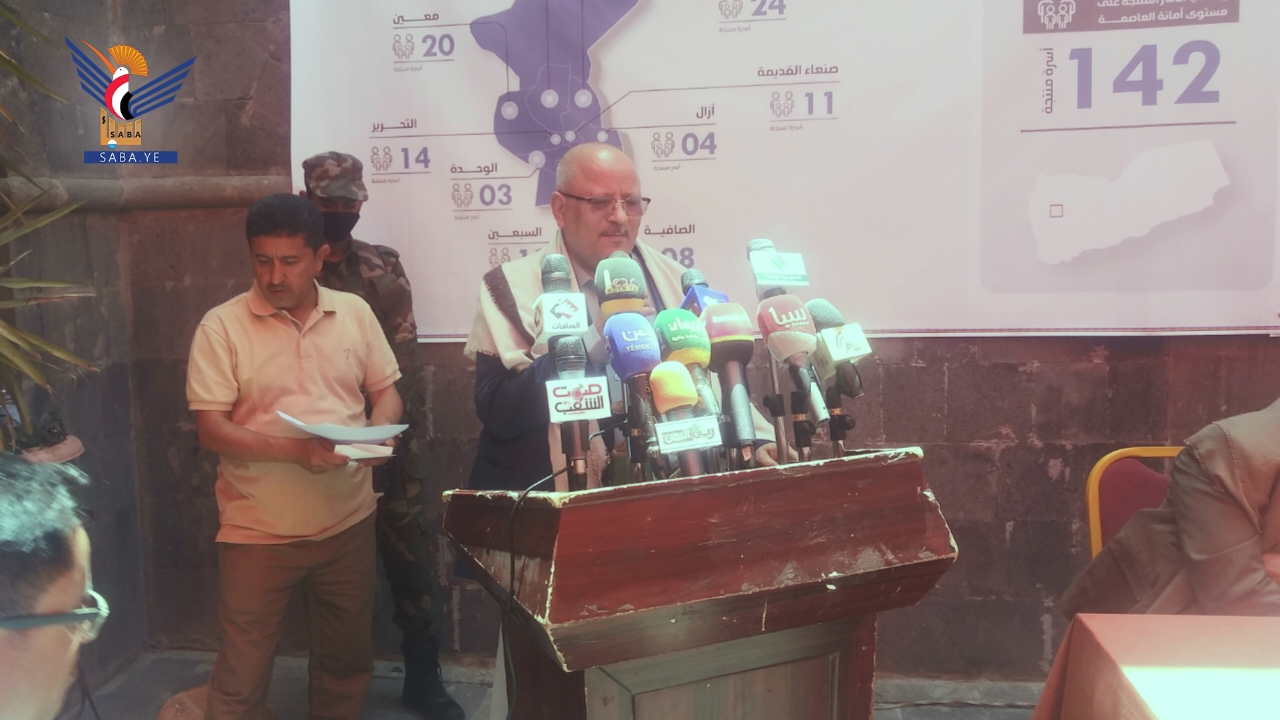Sana'a – Saba:
The Capital Secretariat, in partnership with the General Authority of Zakat and in cooperation with the Ministries of Finance, Social Affairs, Economy and Industry, Agriculture and Fisheries, Transport and Public Works, as well as the Federation of Chambers of Commerce, the Agricultural Cooperative Union, and the Bunyan Foundation, organized a workshop on Tuesday to develop economic empowerment in the Secretariat under the slogan "Sana'a, a Productive and Resilient City."
The workshop, held under the patronage of the National Committee for Economic Empowerment, discussed several key themes and programs necessary to achieve the desired goals in the field of empowerment, as well as ways to advance the work of productive families, encourage them, and support them in producing high-quality goods at competitive prices to rival imported products.
During the opening session, Mohammed Al-Nuaimi, a member of the Supreme Political Council, emphasized the importance of the workshop in developing effective visions and action plans to support, motivate, empower productive families to enhance their economic role and increase their output, contributing to self-sufficiency in various fields.
He highlighted the significance of economic empowerment in realizing aspirations and paving the way toward self-sufficiency by revitalizing families, developing their capabilities, and transforming them into productive units. He also stressed the crucial role of cooperative associations in the districts in strengthening productive families, enhancing their capacities, and marketing their products.
Al-Nuaimi pointed to the private sector’s role in supporting the marketing of family products, which would encourage high-quality production capable of competing with foreign goods. He expressed hope that the workshop would yield practical outcomes contributing to economic empowerment goals and bolstering the role of productive families.
For his part, Mohammed Al-Madani, Deputy Prime Minister for Local Administration, Rural Development, and Minister of Rural Development, affirmed the workshop's importance in advancing economic empowerment and supporting productive families in the Capital Secretariat to enhance their economic role. He stressed the responsibility of district directors in finding appropriate solutions and methods to support productive families, uplift the poor , needy, and economically empower them.
He noted that the success of economic empowerment requires financing, organization, focus, and swift action to achieve its goals, adding that these requirements are available through the cooperation of development partners and relevant institutions.
The Deputy Prime Minister also highlighted the vital role of "Development Knights" in the districts in enhancing the success factors of economic empowerment.
Meanwhile, Dr. Hamoud Abad, Secretary-General of the Capital, stated that the workshop contributes to strengthening the will for development and confronting challenges. He pointed out that economic empowerment helps achieve development, reduce import costs, eliminate unemployment, and improve the conditions of productive families.
He explained that the efforts of the Development Knights and the soon-to-be-established cooperative associations will help translate directives into practical applications on the ground. He affirmed that the Capital Secretariat would mobilize all its resources to support development and empowerment, given their fundamental role in improving the living standards of productive families and strengthening the national economy.
Additionally, Dr. Abdulaziz Al-Kumaim, member of the National Anti-Corruption Authority, Ahmed Al-Kubsi, Chairman of the General Authority for Small and Micro Enterprises, and Mohammed Al-Ayani, Deputy Head of the Banking Sector at the General Authority of Zakat, emphasized the importance of economic empowerment in line with the directives of the Revolution Leader, who urges attention to empowerment programs and improving the conditions of families to transition them from dependency to productivity.
They stressed the need for concerted efforts among various institutions and society to ensure the success of economic empowerment and turn challenges into opportunities. They also highlighted the crucial role of local authorities, district directors, cooperative associations, Development Knights in translating policies and objectives into tangible benefits for society.

| more of (Local) |




